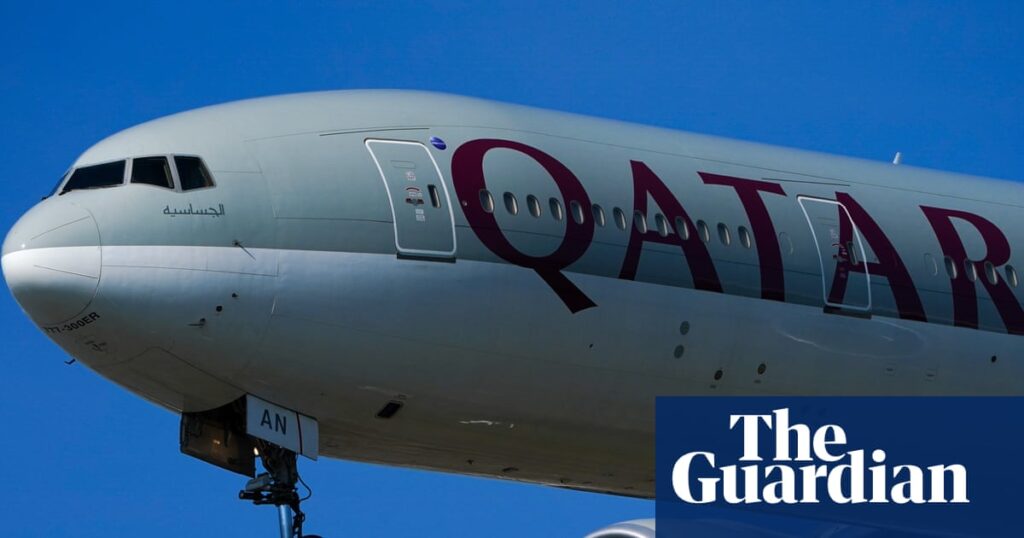Five Australian women who allege they were forced off a Qatar Airways plane by armed guards before some were intimately examined at Doha airport will be able to sue the airline directly, the federal court has ruled.
The women launched an appeal in April last year hoping to overturn a ruling that the airline could not face trial for the October 2020 incident, when they were among more than a dozen women forcibly led from a Sydney-bound plane and escorted into ambulances.
Four of the women underwent bodily examinations – three of which were invasive – without consent as part of a local investigation to find the mother of a newborn baby found abandoned in a bathroom in Hamad international airport. The infant survived.
The episode sparked international outrage, with the women suing Qatar Airways Group, Qatar Civil Aviation Authority (QCAA) and Matar, the Qatari company responsible for airports operation and management, for negligence, assault, false imprisonment and battery.
Sign up: AU Breaking News email
But the case against the airline, in which they sought damages over alleged “unlawful physical contact”, was dismissed, with Justice John Halley finding that Qatar Airways should not have to go to trial because its employees could not have influenced the actions of Qatari police, who boarded the planes to remove the women.
Halley also found that the QCAA was immune from the court’s jurisdiction and determined that the five women could instead refile their claims for damages against Matar.
The women lodged an appeal against the judgment, hoping to pursue Qatar Airways and the QCAA directly.
after newsletter promotion
On Thursday morning the federal chief justice, Angus Stewart, said the court found that Halley had “erred” when he summarily dismissed the airline’s claims that the invasive examinations had not taken place in “the course of any of the operations of embarking or disembarking” the aircraft.
“There is no sufficiently high degree of certainty that what happened to the appellants in the ambulance could not ultimately be found to have been in ‘the course of any of the operations of embarking or disembarking’,” Stewart told the court. The issue could “only be decided at trial and not on a summary basis”.
He also found that Matar’s application to set aside service should have been dismissed – and that its claim a nurse who had who performed the bodily examinations was not its employee was arguable.
It was an “error to conclude at this stage of the proceeding that Matar’s duty of care cannot possibly extend to the circumstances in and around the ambulance”, he ruled.
He ordered Qatar Airways and Matar to pay the costs of the appeal.
But the judge dismissed the women’s appeal against the QCAA, telling the court the evidence showed management activities of the government-run authority “were in pursuit of public functions of the State of Qatar”.


